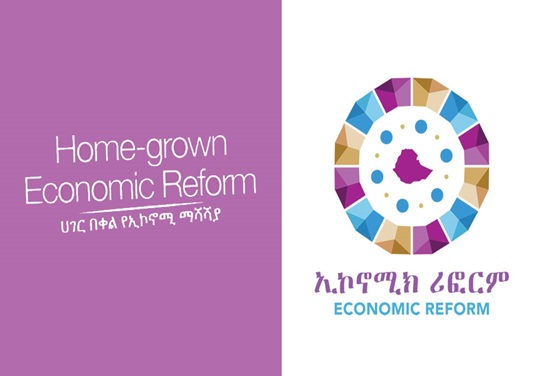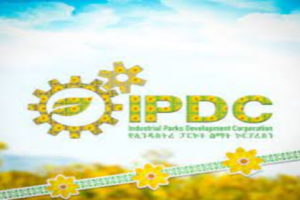
Despite political ups and downs in the last four years, the economic reform that took place has brought a glimpse of hope to the nation.
The challenge the nation faced is not easy. In the pre-reform era for the last 27 years, the now-defunct regime formulated economic policies to serve the interest of the high-echelon party officials and politically affiliated business firms.
Public enterprises were led by inefficient politically appointed yes-men. Corruption was rampant, and money laundering and illicit trade were given protection by powerful men. The import-export business was led by few individuals favored by the political establishment, says Atlaw Alemu (PhD) an economist.
As to him, the prevalent ethnic politics in the country was a constraining factor for economic growth. In each regional state indigenous people were inculcated to see that all resources there belong to them and to regard other ethnic groups as newcomers rather than citizens. This, in turn, inhibited the inflow of ideas, knowledge, skills and capital towards the regions which made them miss the opportunities.
The public enterprises were mismanaged and most imported items were luxuries irrelevant to support the economic activities. In some regions land was allocated to the so-called local investors only to serve as collateral to secure a loan from local banks which again was the money allotted to the unproductive sectors. Though big money scandals and grand corruption were rampant due to inept legal institutions, till now holding the culprits accountable is insignificant. Moreover, billions of Dollars have flown out illegally by the past establishment and the current inflation is partly attributed to that misdeed.
Hence, to reverse the situation, the current government was forced to introduce a new economic reform program which shows some glimpse of hope.
Shiferaw Adilu, an economist, said that before the emergence of the new government the economy was mismanaged. The claim that the nation was registering two digits economic growth was extremely exaggerated.
Most projects were focused on infrastructure development such as roads, hydroelectric power dams, academic institutions, airports, industrial parks and big agricultural farms. The investment was drawn from a public fund. In this regard, the role of private investment can be said minimal. This again made the government play a dominant role in the economy. Projects were delayed for various reasons which intern, incur additional costs and burdened taxpayers. Not only this, the delay of projects opened the door to corruption.
The nation’s wealth was uninterruptedly looted for decades and the economy was plummeting downward. During the reform period, the government to some extent enabled the stabilization of the macro-economy. As compared to other African countries’ experiences, the inflation witnessed here is not unmanageable said Shiferaw.
Unemployment is a serious problem but there is no clear information on whether the number of unemployed people is correctly registered or not. The political conflicts that flared up here and there in the past could aggravate unemployment, because eviction can make people out of work. But it is not similar to other African countries.
According to the Prime Minister’s Office website, the objectives of the economic reform is easing bureaucratic hurdle in doing business, boosting entrepreneurship and news start-up, formalization of business, raising the competitiveness of local firms, investment attraction and retention, creating more job opportunities, working vigorously for the prevalence of transparency and service delivery and promoting efficient tax administration including the utilization of Information.
However, as to Shiferaw, the government’s steps to reform the economy is appreciable but its approach was in fragmented manner which again brought its drawback to unleashing the nation’s potential. Hence, to bring long-lasting solutions at the macroeconomic level, planning and implementing a new road map is vital.
The privatization of Ethio-Telecom helped the nation to pull new foreign investment, technology and new thinking. The dominant role of the government to some extent is reduced. The beginning of the Safaricom operation here gave way to new competition between the publicly owned and the privately owned foreign company. Now one can have the option to purchase air time for his mobile phone service other than the Ethio-Telecom. As mentioned, the government’s preoccupation with containing insurgencies in various parts of the country forced it to pay less attention to the economic front. As to Shiferaw, the ongoing construction of GERD though it faced a political impasse due to the lower riparian countries’ adamant stance towards the tripartite negotiation, the successful accomplishment of the third phase of water filling is encouraging.
Zelalem Teklu (PhD) is an economist who said during the dawn of the change, he expected that things were going smoothly but abruptly began to go in unwanted directions due to the flare-up of ethnic conflicts sponsored by foreign elements in various parts of the country.
However, though the situation was inconvenient, the measures that have been taken to reform the economy brought better results. The reform could attract foreign partners and enable the government to obtain up to 10 billion Dollars in the form of a loan.
The economic reform is important and has valid objectives particularly to address various problems related to the macro-economy and among others to mitigate unemployment, inflation and scarcity of hard currency. It should be understood that exporting agricultural products with value addition enhances the competitiveness of the products. Some efforts are undergoing in this regard but it is still at its pre-mature level hence, scaling up the effort is essential. Regarding privatization, Tekilu says, “currently privatizing Ethiopian Airlines is not a possible option because the organization showed the world its efficiency. However, the absence of local management capacity in some public enterprises necessitates privatizing public enterprises.”
Therefore, bringing foreign companies to do business here paves the way to building capacity and transferring knowledge.
He further said that privatization endeavor enables the nation to attract and obtain more foreign currency which shores up the scarcity. The construction of industrial parks in various parts of the country attracted local and foreign investors.
The announcement of the bid-winning companies also is encouraging during the privatization process to make it transparent. As to Teklu, privatizing party-owned companies must be part of the economic reform.
As it is known, in the past two years the war broke out in the northern part of the country bringing its own economic Havoc. Infrastructures such as roads, universities, hospitals, manufacturing industries and airports are demolished. Still, millions are displaced from their residential houses. Markets have failed and the new rail transport construction stretched from Awash to Mekelle Hara gebeya which was undergone by the Turkish company is dismantled. According to government sources more than five billion Dollars is needed to repair and reconstruct the damaged properties.
So far, to re-invigorate the nation’s economy, addressing the macroeconomic ills is essential. Shortage of hard currency, foreign debt, inflation and unemployment are the pressing challenges which hamper the nation’s economic growth; therefore, implementing the economic reform introduced three years ago properly is essential.
ABEBE WOLDEGIORGIS
The Ethiopian Herald 24 November 2022



